It is that time of the year again when the scorching sun is upon us, as is the much-awaited summer holidays. If planning a trip abroad or a break in the hills is not on your list this year, may we suggest exploring India’s wild side. Experts say this is the ideal season to holiday in the forests, and get up close with their teeming wildlife. With tailor-made safari experiences to spot tigers, a crocodile safari by boat, and trails on a cycle, we bring you a low down of the country’s popular National parks and the hospitality players offering luxury experiences in the wild.
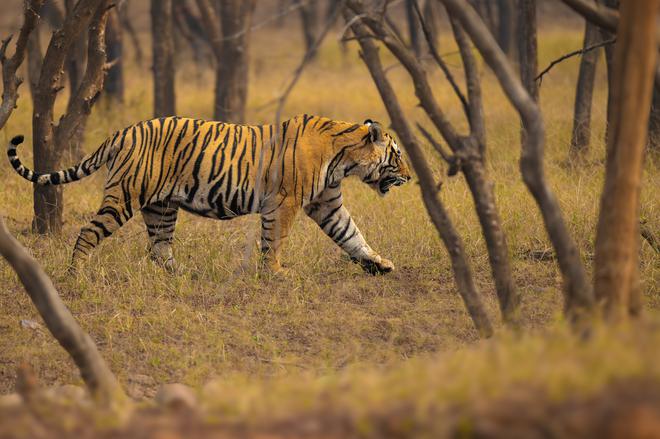
The Ultimate Travelling Camp (TUTC), Bandhavgarh and Ranthambore National Park
The hospitality venture — known for its luxury nomadic camps — is India’s latest safari experience. Launched in December 2023, Sawai Shivir Ranthambore, offers a luxury camping experience in the Ranthambore forest. At the break of dawn, guests are greeted by the song of birds, and the jeep safari that follows takes you through the National park’s rugged terrain. Guided by seasoned naturalists, a typical safari experience’s popular sightings include royal Bengal tigers, leopards, sloth bears, wild boars, the Indian gazelle and spotted deer, among others. “Guests also have the opportunity to go for river safaris on the Chambal river and spot gharials and crocodiles basking in the sun on the river banks,” says Rajnish Rai, chief operating officer and founder-member of Ultra Resorts and Hotels.
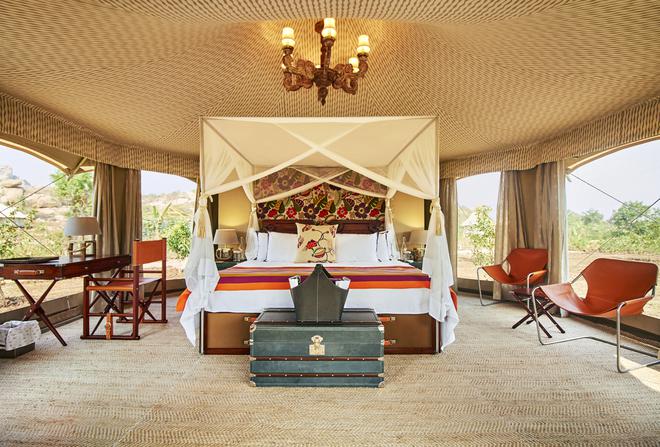
At Bandhavgarh, the camping site is situated at Tala village, opposite the Khitauli core zone. “There is only a 12 feet road that separates the property from the forest area,” says Rajnish, explaining how their Kenyan-inspired canvas tents are placed on a 4.5 feet stilt to ensure a great view, and also enable wildlife (tigers, wild boards, leopards, etc) movement between the core jungle zones. The tents, he adds, are put up during the season and packed away by June.
Here too, private and shared vehicle safaris take guests on a three-hour ride into the wild. “Bookings are done on the Government website, and a Government guide accompanies our naturalist Yeshwant Shekhawat on the trail,” says Rajnish. Other offerings include a birding trail to spot the over 150 bird species in the region, Nature walks, cycling trails, and sundowners with bird watching. “We also have a tented spa with two treatment rooms,” he adds.
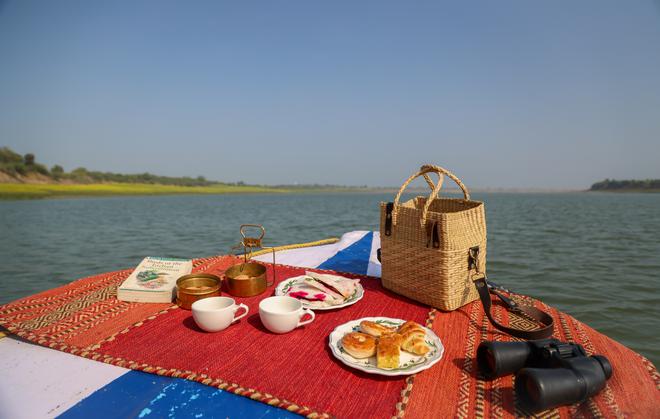
In recent times, Indian tourists have experienced a remarkable shift in their travel preferences, increasingly gravitating towards immersive wildlife encounters, explains Rajnish. “Our foray into wildlife experiences at Sawai Shivir in Ranthambore and The Untamed at Bandhavgarh, after our flagship properties in Chamba Camp in Thiksey and Nubra Valley of Ladakh, Kohima Camp during the Hornbill festival in Nagaland encapsulates this trend,” he states, adding that luxury travellers today are also increasingly conscious of the impact their travel choices have on the environment, local communities, and cultural heritage.
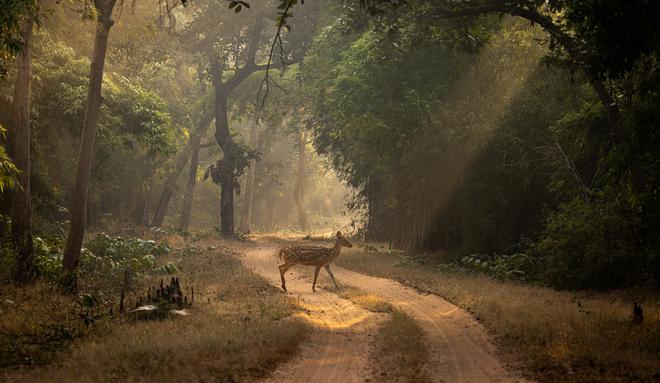
Season: October to June
Prices: Ranthambore: Luxury tent at ₹80,000 + tax, Presidential tent at ₹1,00,000 + tax, Bandhavgarh: Executive tent at ₹35,000 + tax, luxury tent at ₹45,000 + tax
Evolve Back, Kabini
Approximately four hours from Bengaluru, after you drive past Coorg, lies Kabini and its forests, teeming with a range of flora, tigers, leopards and elephants, among other wild beasts.
The property is bordered on two sides by the Kabini River which separates the Bandipur and Nagarhole National Parks, and in turn is part of the larger Nilgiri Biosphere Reserve. And to experience the natural wilderness, the resort offers safaris via vehicles, boats, and even a coracle ride.
“All safaris are by the Jungle Lodges and Resorts which are operated by the Karnataka Government,” explains Jose Ramapuram, director of Marketing at Evolve Back, adding that safaris begin at the Kabini river lodge. Trained guides are provided by the resort, and the safaris (morning and evening) are “organised and well-managed” to balance the carrying capacity. “The parks are divided into different sections, and limited vehicles are permitted in each section.”
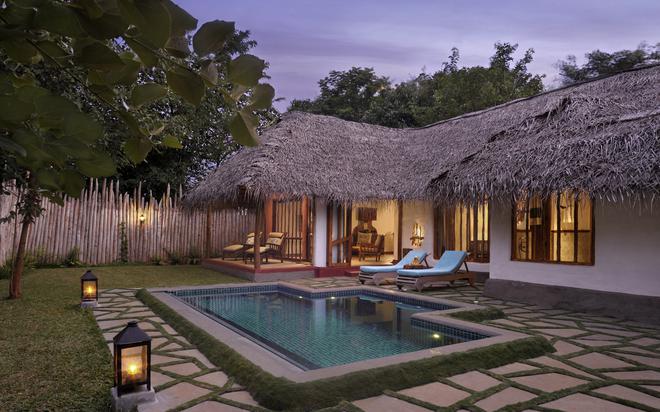
As for the boat safari, it begins from the property and guests are taken in the backwaters upstream. “With Nagarhole and Bandipur on either side, this zone is rich in wildlife. Between January and April, the forest dries out, and animals come to the reservoir from far away. There is ample grass that attracts herbivores, who in turn attract the carnivores,” says Jose, who adds that the light is very different in a boat safari as compared to a land safari. “One can see crocodiles, water birds, geese, etc that fly in from as far as Europe and Siberia. The animals you see are different, and it is a varied experience.”
There are also Nature walks along the banks of the Kabini River, and for the more adventurous traveller, night trails that explore the region’s nocturnal insects, amphibians and reptiles.
The resort is also home to the Kabini Interpretation Centre, an Insect Interpretation Centre, a small Kuruba Tribal Museum and a two-acre wilderness insect/butterfly sanctuary within the resort premises. “The Kabini Interpretation Centre highlights the region’s history, and that of its flora and fauna by way of historical photos.”
Jose explains how there has been a rise in occupancy over the past few years. This, he attributes to several reasons. The primary one being the pandemic, and how people preferred the property as the area is “relatively isolated”. “Secondly, many were unable to travel abroad due to Covid-related issues, and were looking for holiday options in India, and many took to ‘revenge tourism’ ie just wanting to travel after being holed up for a long time,” he says.
Jose further explains that the market is now reverting to pre-pandemic levels, and the above reasons are no longer in play. “Even then, there is an increased interest in wildlife, probably due to more awareness being generated during the pandemic,” adding that the top amenities today’s traveller requests for include privacy, bespoke experiences, and varied cuisine.
Season: All-year
Prices: ₹35,000 per night, per couple, inclusive of breakfast, dinner, select activities and all taxes.
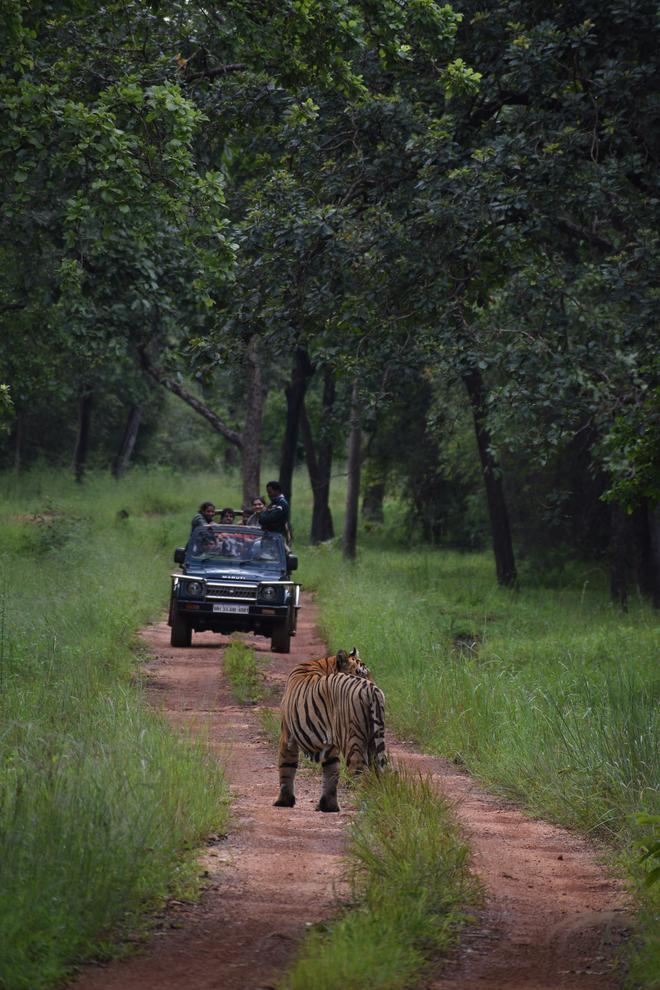
Pugdundee Safaris, multiple locations
With intimate jungle lodges in Kanha, Bandhavgarh, Pench, Satpura, Panna and Tadoba, Pugdundee Safaris banks on its team comprising naturalists, Nature guides, boatmen, and wildlife trackers to ensure travellers get to experience a slice of the wild.
“Wildlife holidays are now becoming a regular norm of the evolved Indian traveller and are slowly getting a share of fondness just like annual mountain and beach holidays,” says Manav Khanduja, director, Pugdundee Safaris, adding how social media and easy accessibility of good photography equipment have further fuelled the interest, as “everyone wants to try their hand at clicking their favorite cat!”
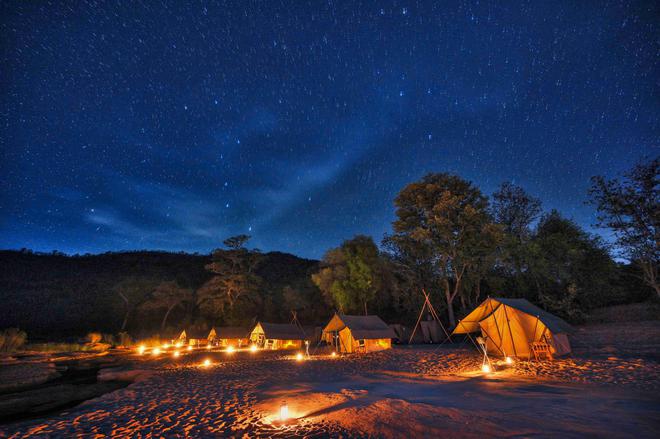
Having said that, there is a safari for everyone. “For tiger sightings, Bandhavgarh and Tadoba are recommended. Kanha is the most scenic and in-demand, Satpura is popular for its holistic experiences such as night walks, coracle rides, etc. that make for an active holiday, whereas Pench is ideal for spotting leopards,” explains Manav, adding how most guests want a guarantee to spot a tiger!
He adds, “We cannot guarantee a tiger sighting, and it definitely needs some luck!” Which is why he recommends guests travel for a minimum of four-five days. “We stopped one-day bookings a few years ago and don’t advise people to come in for just a couple of days.
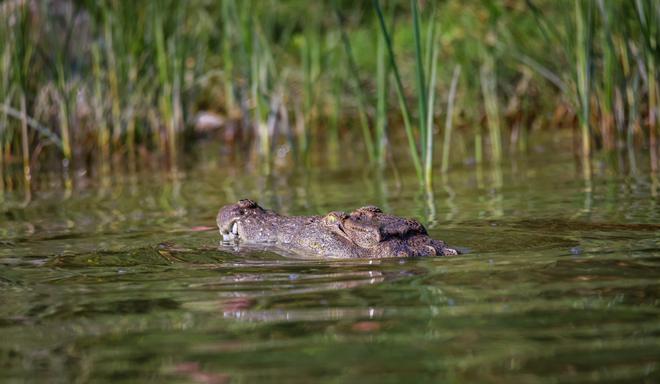
The longer your stay, the higher the chances of spotting a tiger as you can take multiple safaris. Guests can also explore sites such as the Bandhavgarh fort, etc that otherwise get missed because the pressure is on sighting a tiger and they go back disappointed.”
If you aim to sight the big cat, their Great India Tiger Safari (covering Tadoba, Kanha and Bandhavgarh) and Tiger Tour (comprising Bandhavgarh, Kanha and Pench) could be on your itinerary. For the bird enthusiasts, there is a Central India Birding Tour that takes tourists to Satpura, Pench and Kanha National Parks.
If you would like a blend of it all, the Wildlife Trails Programme covers the top four parks of Central India: Panna, Bandhavgarh, Kanha, and Pench.
Manav says a safari experience is different for each traveller. “Parks have their popular zones/gates which grow in popularity every season, owing to a more frequent movement of the residing cat or the arrival of a recent litter. The experience is surreal as the onlookers get to witness a world very different from theirs. A more seasoned wildlife enthusiast, however, starts loving everything about the jungles and doesn’t necessarily indulge in cat chasing,” he says.
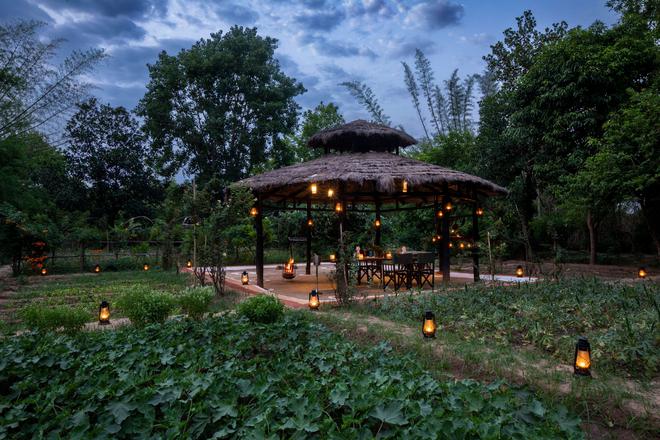
In addition, Manav says bespoke experiences are “always in demand”. These include a bush dinner in the wild. “The concept is popular in Africa, and we serve guests a five-six course meal in the middle of the forest, sans any artificial light. We also offer sunset walks, cycle rides between national parks, walking trails, canoe rides, etc,” he concludes.
Season: October to June
Prices: Accommodation starts from ₹20,000, inclusive of meals and taxes
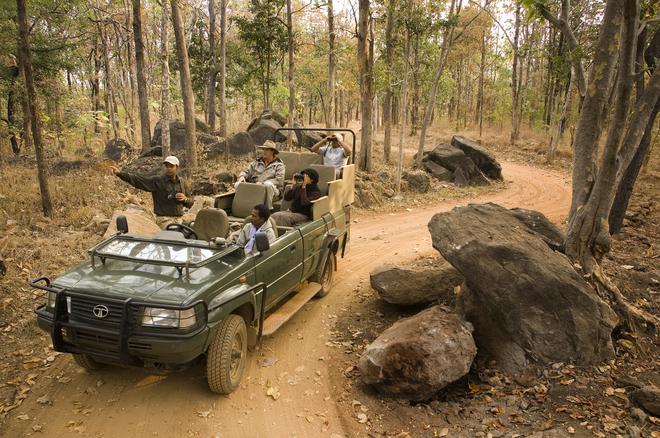
Taj Sawai, Ranthambore
At this property that opened its doors two months back, no visit is complete without a safari to the Ranthambore National Park which is typically marked by tiger sightings.
The park offers a unique opportunity to witness tigers in their natural habitat unlike any other destination in India, says Kunal Roy, general manager, Taj Sawai, Ranthambore, adding that alongside the thrilling tiger encounters, visitors spot leopards, sloth bears, deer, fox, crocodiles, and can immerse themselves in “the diverse flora comprising 539 species of flowering plants”. Additionally, the historic Ranthambore Fort, constructed by the Chauhan rulers in the 10th Century, adds to the safari experience.
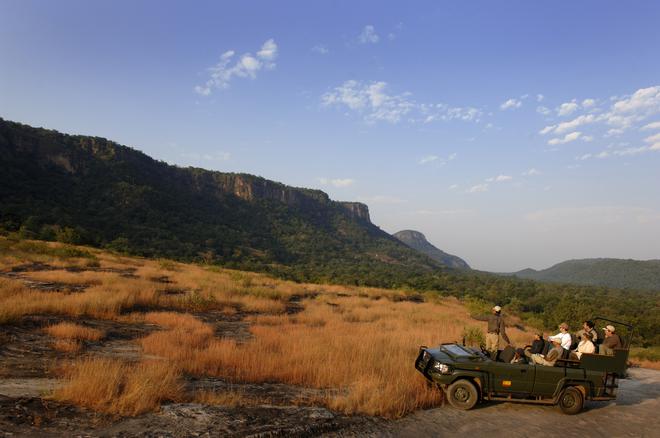
“Guests book the safari first, and then the resort. We offer a morning and evening safari and two vehicle options: a six-seater Gypsy, and a 20-seater mini bus. The latter is a popular choice for large families,” says Kunal, adding that their in-house team of three naturalists — Ashilesh Sharma, Pawan Joshi, and Chandrakant Gautam — accompany guests on the three-hour safari.
Guests can also opt for the Chambal wildlife safari about 20-25 kilometres away from the property, wherein a boat takes you around the Chambal river to spot crocodiles. The brand also offers safaris at National Parks at Bandhavgarh, Pench, Panna, and Kanha.
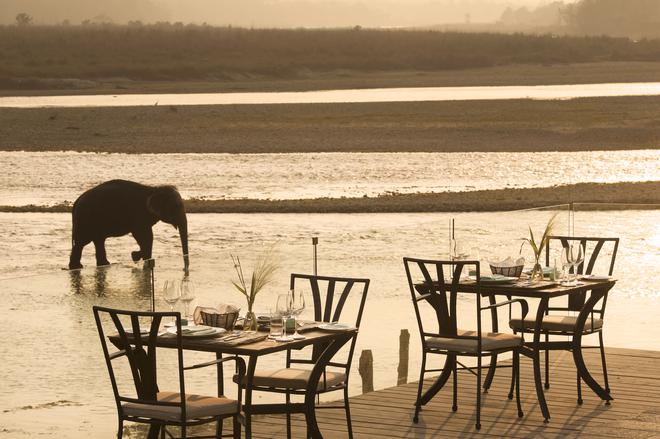
The safari experiences aside, Kunal says supporting the local community by involving them in daily operations forms a key part of the experience. “We have hired a local woman to make tea for the guests and she has been very popular. She now has a stall ‘Kaaki ki chai’ at the breakfast buffet,” he says, adding, “A local potter who specialises in black pottery has been onboarded, and he comes every evening to teach guests pottery. There are very few black pottery artisans left in the region, and this is a way to support a dying art.”
Season: October to March
Prices: Between ₹32,000 and ₹42,000 per room, per night, excluding taxes
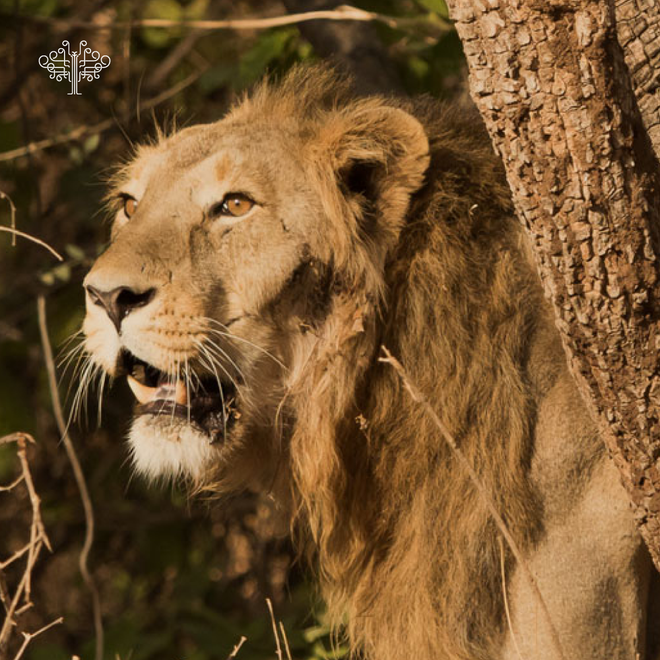
Woods at Sasan, Gir
Gir is home to the last of the Asiatic lions in the world, and if you plan to head there this year, you can choose from a luxury escorted safari in a private open gypsy, or one by rail.
“We offer an escorted forest safari in a private open Gypsy with our resident naturalists to spot Asiatic lions, leopards, among other animals,” says Maulik Bhagat, CEO, 1000 Island Hotels and Resorts, who says he has witnessed a noticeable increase in travellers “expressing a keen interest in wildlife and safari holidays, particularly centered around destinations like Gir National Park”.
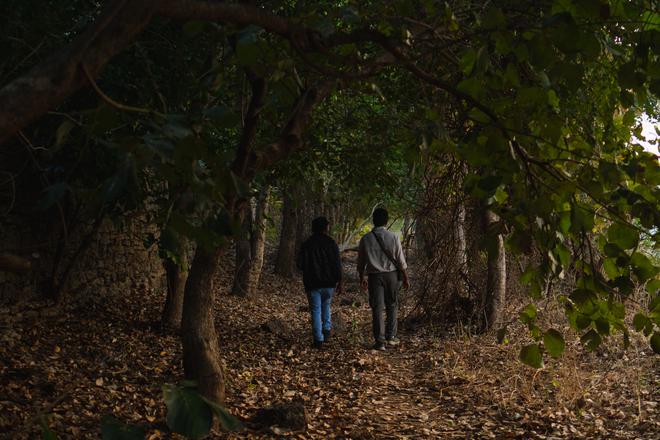
This surge, he says, can be attributed to the rise of sustainable tourism and the growing emphasis on wildlife-based tourism. “Over the past five years, we have observed a notable increase in both domestic and international tourist enquiries. This is due to the establishment of an international airport in Rajkot, and the region’s reputation as the only natural habitat of Asiatic lions.”
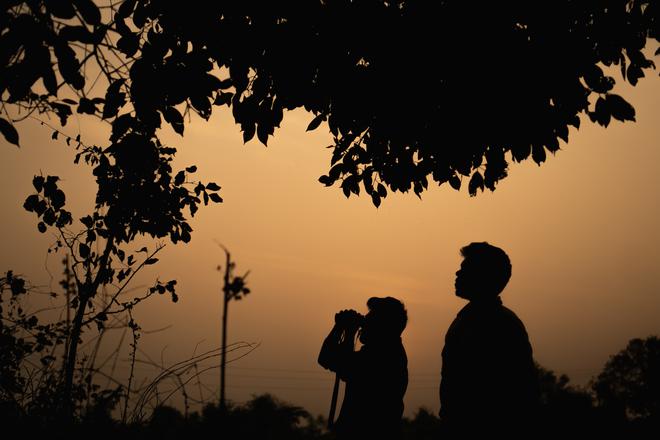
Alongside safaris, guests are offered a range of exclusive, personalised experiences. The vintage tea tale and community lunch in a mango orchard is especially popular. “The former offers guests a bespoke vintage car ride to a secluded spot by the Hiran River, where they can savour freshly brewed tea while immersing themselves in the natural beauty of the landscape. At the community lunch, guests dine in a secluded setting amidst the forest surroundings of the retreat, while their lunch is prepared over a wood fire, accompanied by live flute music,” he adds.
Season: October to March
Prices: From ₹15,000 to ₹32,000 per night







